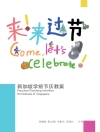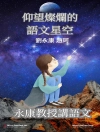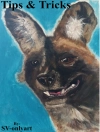How does one keep classic books alive for young people today and teach them that literature is instructional and delightful? How does the teacher foster a classroom environment that encourages student participation and promotes enjoyment so that teenagers learn to appreciate literary study? More specifically, how can teachers cover centuries of American literature with students who dont appreciate why they should read material written centuries ago about people and issues that appear to be irrelevant to life today in a language that seems esoteric?
The author of this series of high school teaching guides addresses these issues. How to Teach American Literature: A Practical Teaching Guide provides a detailed resource for teachers or anyone interested in an in-depth study of the subject. This second book in the series covers American literature from the Puritan era to contemporary works. Included are suggestions for cultivating a love for literature, teaching techniques, detailed analyses of each work, questions for review and test questions with suggested responses, essay topics, audiovisual aids, classroom handouts, and recommended books that enhance teaching. The author emphasizes two basic reasons for teaching literature: it is instructional and delightful. This book provides a comprehensive methodology for teaching the subject that a teacher could apply to one years lesson plans without further investment in time.
Elizabeth Mc Callum Marlow has developed quality comprehensive guides for the teaching community based on her thirty-five years of experience and her passion for literature. Teaching professionals will find her tried and true practices to be invaluable.
Johnathan Arnold, MBA, M.Ed, D.Ed.Min
Headmaster Covenant Christian Academy, Cumming, GA
About the author
Elizabeth Mc Callum Marlow, M.A., taught high school and college English for thirty-five years. She developed approaches that she found were effective in teaching teenagers to enjoy literature. This is the seond in a series of high school textbooks on teaching literature that provides teachers with an experienced teachers methodology. Elizabeth is co-author of The Book Tree, a reference guide that helps young people find a book they enjoy and that cultivates a life-long habit of reading.












